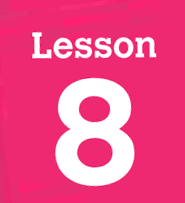Trump it on Monopoly!
Learning financial lessons and real estate wisdom
from one of the best loved games.
In the era of computer games and mobile applications, board games may not rank highly in the family activity list. However, do not dismiss them too quickly. A game like Monopoly is not just fun, it can offer children useful lessons on basic personal finance.
NOT CONVINCED? Just reflect on the times when you played Monopoly as a child. You may have picked up some of these ideas without even realising it:

You may have learnt to count your money and return change for purchases.

You may have understood that money is finite and you needed to pass “GO” to collect your salary or earn it from rental.

You learnt to manage your money well to stay in the game and win.

You may have understood that if you don’t manage your money well, you could end up with excessive mortgages and ultimately bankruptcy.

You could have learnt that you cannot avoid taxes!
Quite a few important financial lessons there, don’t you think? The good thing is, it is just a game and there is no risk involved or actual money lost! Maybe it is time to get the whole family into the game and learn some valuable lessons at the same time. And while you are playing, you may want to take time to teach your children some of these financial lessons.

Make wise financial decisions to grow your money/salary
You are given a fixed amount of money to start the game. If you play it well, you may increase your initial capital many folds. You may want to explain to your child that it is similar to what you do in life. You begin with your starting salary at your first job, and save and invest that money to work up to a nice nest egg. You may also teach your child the value of money and encourage them to save in an HSBC Premier Junior Account as a way to grow their money through interest rates on their account.

Negotiation skills
Your children may learn the importance of negotiation and how to do it. For example, if they are mean or rude, they may not be able to trade their properties with another player. Or, they may learn to negotiate well to gain a little more benefit out of the deal than their opponent.

Handling emotions in investments
Even though the money is fake, the emotions can be real. Your children ( or even you) may get upset when they lose money. You can then help your children recognise how their emotions may affect their investment strategies in the game. For example, they may feel insecure and choose to stockpile on cash, or they may feel greedy, buying up too many properties and depleting their cash reserves. It is an opportunity to explain that emotions should not be the guide to their financial decisions.

The element of timing and chance
In Monopoly, you throw a dice and it could land you in prime property, the railroads or even ‘Chance’. Paralleled to life, there are some things that are beyond our control. The lesson for your child is to learn to make the best out of the hand they have been dealt with, given the circumstances.

The art of diversification
The popular saying, “Don’t put all your eggs in one basket” is true in life and in Monopoly. Your child may learn that to win in the game, they may want to buy a mix of properties. Whilst they need one color group to develop houses and hotels (which will lead to higher rental collection), it may not be enough to win the game. That’s where diversification comes in. They may want to add to their properties, income generating ‘utilities’ or ‘railroads’. They may also consider other strategies such as buying up properties as a trump card to prevent other players from building against them or negotiate property trading deals.

Dealing with debt
The consequences of debt can be an important lesson in Monopoly. Each property your child holds can be leveraged as ‘collateral’ for cash to pay for other obligations, such as rental or tax, or to bankroll more investments. However, when your child mortgages a property, he/she will also lose its rental income. Too much debt may eventually boot him/her out of the game. The same can happen in life – taking on too much debt without the means to pay for it may set them back in the real world. You may also want to talk to your child about credit cards and how they can chalk up debt if handled incorrectly.
You can suggest the use of debit cards instead as a way to control spending and avoid getting into credit card debt.

Asset management
Your children can also learn about asset management from Monopoly. If they don’t maintain enough cash reserve for expenses such as rent or taxes, then they may be forced to sell houses or mortgage properties at a loss to raise money. On the other hand, to win at the game they cannot stay completely safe in cash. They will need to be invested and that means taking a risk in buying and developing their properties. How do they find a good balance and win? There may be a lesson in that.

Financial evaluation
The game may be over but the lesson continues. It may be a good time to ask your child, ‘How did you win or lose your money or properties? What decisions lead to your victory or loss? ‘ You can consider helping them to learn from winning (or losing). If they can answer these hard questions, consider it a game well played, win or lose.
And there you have it! In a few hours of game play, your children can get a glimpse of financial matters like mortgages, diversification, property ownership, money flow and taxes. Money matters aside, the most important lesson may be simply to enjoy the game together.
Disclaimer:
Information above is based on games played on the Monopoly Classic and derived from various sources as follows:
Philip Orbanes, “Monopoly, Money, and You: How to Profit From the Game’s Secrets of Success” published by McGraw-Hill, first edition, 12 March 2013.
US News, Money, Personal Finance, “What Monopoly Can Teach You About Smart Investing, 20 March 2013.
Mother Nature Network, “Monopoly helps teach kids about personal finance”, 6 February 2013.
Kiplinger.com, “How Monopoly Helps Us Make Smart Financial Decisions”, May 2013.
Monopoly names, logos and gameboard are trademarks of Hasbro.
October 2013


 LIKE THIS ARTICLE?
LIKE THIS ARTICLE?





















